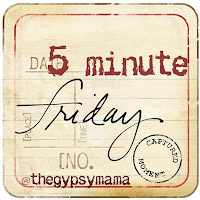In 1 Samuel 7:12, it says that after the men of Israel defeated the Philistines, “Samuel took a stone and set it between Mizpah and Shen, and named it Ebenezer, saying, ‘Thus far the Lord has helped us.”
Years ago, I began a personal collection of “Ebenezer stones”…a bent nail, a hospital bracelet, a plastic snowflake, etc. These mementos serve as markers along my road of faith. They remind me of lessons my heavenly Father has taught me, and times when I look back and take comfort in knowing that He was there, helping and guiding me.
The second stanza in the old hymn “Come Thou Fount of Every Blessing” reads:
Sorrowing I shall be in spirit,
Till released from flesh and sin,
Yet from what I do inherit,
Here Thy praises I’ll begin;
Here I raise my Ebenezer;
Here by Thy great help I’ve come;
And I hope, by Thy good pleasure,
Safely to arrive at home.
When I look at my life, whether traveling through valleys or resting on mountaintops, I can say with confidence, “thus far the Lord has helped me,” and I look forward to the time after this present journey...my arrival home to be with Him forever.

Your mementos remind me of Hinds Feet on High Places. It is good to have reminders of how God has helped us. Thank you for sharing.
ReplyDeleteThanks, Dawn! It was good to see you again on Friday! :)
DeleteYes - remembering has been such a faith-builder for me. I love the idea of collecting tangible memories.
ReplyDeleteThank you, Kristin!
DeleteLove the idea of keeping "Ebenezer stones" to remind us of what God has done for us in our lives, and to encourage us that we can and will get through any hardship life throws our way.
ReplyDeleteThank you, Stacey! Having something tangible to hold does help to strengthen and encourage me in my walk.
DeleteAs you may know, this is one of my favorite hymns. And "Jehova Ebenezer" is one of my favorite names for God. Thank you for expressing this so beautifully!
ReplyDeleteJeff Bjorck
You're welcome, Jeff. I do remember that it is one of your favorites, and love your arrangement of that hymn!
DeleteJulie, I really appreciated your devotional on the significance of the Ebenezer stone. Thank you for the reminder of this memorial lesson that just as God was a strong help in ages past, so He will be to us afterwards--in the present and future. When I saw that "after" was the word of the day, I thought of two starkly contrasting verses which use "after" or a variation of it.
ReplyDeleteThe first verse is a word of warning about judgment:
"...it is appointed for men to die once, but after this the judgment," (Hebrews 9:27)
The contrasting verse that I thought of is a word of comfort and encouragement concerning His promise of glory for those who put their trust in Him: "You will guide me with Your counsel, And afterward receive me to glory." (Psalm 73:24)
The stark contrast is judgment versus glory~~opposite outcomes. The use of "after" or "afterward" in each of those two verses emphasizes just how important it is to pay attention to the eternal implications of this little word--after. The deep ponderings and foolish vexations described by the psalmist in Psalm 73 thankfully lead to his comforting conclusions in verses 23-28, particularly that phrase in verse 24, "... And afterward receive me to glory." So based on Scripture then, what a wonderful privilege it is to be able to say as you did in your closing sentence, "... I look forward to the time after this present journey... my arrival home to be with Him forever."
Thanks for your comment, Mom! I really appreciated the verses you included and your thoughts on them!
DeleteYou're welcome. Psalm 73 is among my most favorite Psalms, by the way. It illustrates spiritual victory and inner peace after a great inner struggle with troubling questions and conflicts.
ReplyDelete:-) love reading your words. I had forgotten what Ebenezer meant. I am thankful to have been reminded.
ReplyDelete